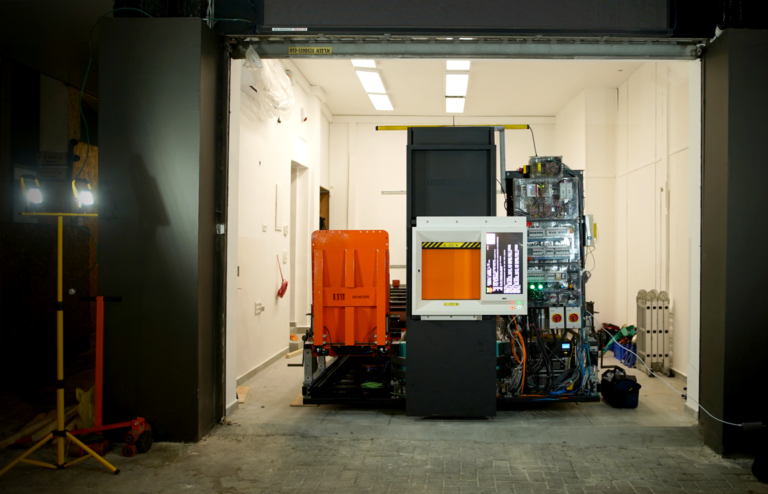
Innovation has been playing an increasingly major role in retail for well over the past decade. As customer behaviors and preferences evolve and new technologies come about, retailers continuously seek new and better methods for achieving their goals. One of the latest and more notable examples is the growing shift to hyperlocal logistics.
A New Paradigm In Retail
With rising expectations and an abundance of options competing to meet them, modern customers gravitate towards the brands that offer them the greatest amount of convenience in addition to their product selection. Today, this comes in the form of dynamic shopping channels, seamless payment experiences, worthwhile loyalty programs, and personalization to name a few. But above all else, in an age dominated by online shopping and the need for high item accessibility, customers desire faster deliveries. As retailers place greater emphasis on shortening delivery times while on their continuous quest to optimize processes, they’re turning to hyperlocal logistics as the key blueprint in solving the logistical challenges associated with reaching more customers with more items and in less time.
As suggested by the word hyperlocal, hyperlocal logistics is an innovative logistical strategy based on location; specifically, being located in high proximity to customers. Using the principle that retailers can fulfill orders faster by being positioned closer to their customers, hyperlocal logistics is intently designed to address the industry-wide challenge of reducing delivery times while simultaneously opening the door to a range of benefits for its adopters.
The Advantages of Hyperlocal Logistics For Retailers
Rapid Deliveries
In order to achieve high proximity, retailers are replacing their massive traditional warehouses on the outskirts of cities with a higher volume of smaller, alternatively built fulfillment centers in densely populated urban areas, allowing them to eliminate much of the distance deliveries are subject to. With a new approach to fulfillment centers, hyperlocal logistics introduces hyperlocal nano fulfillment centers, or NFCs, that are built to operate completely differently in comparison to the larger conventional ones. Changing the delivery landscape, NFCs enable retailers to deliver items in just a few hours, as opposed to several days or more as is common practice today.
Automation & Efficiency
The latest NFCs are driven by automation along with the most advanced technologies and operational techniques available. Bringing retail to the pinnacle of operational efficiency, NFCs can operate both autonomously and semi-autonomously, using state-of-the-art equipment as well as artificial intelligence and machine learning to carry out all tasks involved in inventory management which are usually done manually. From order intake, preparation and packaging, to item tracking and self-maintenance, automated NFCs focused on retail automation solutions make it possible for retailers to fully operate facilities and prepare orders for delivery with cutting-edge efficiency and without needing a single employee.
Cost-Saving
With a headcount of zero (or close to it), retailers who apply hyperlocal logistics are able to save tens of thousands of dollars in monthly employment costs, while winning the fight against other costly occurrences such as shrinkage, shoplifting, vendor fraud, and any inaccuracies involving stock or during point-of-sale due to human error.
Omnichannel Support
In contrast to multichannel, in which retailers offer a number of parallel channels and touchpoints that are experienced individually during the customer journey towards a purchase, such as in-store, website, or social media, omnichannel offers customers the ability to interweave between different channels and touchpoints within their journey towards the same purchase. As customers in today’s shopping environment have increasing preferences and desire more personalized experiences, retailers are placing a strong emphasis on omnichannel strategies, which depend on their ability to manage inventory and make items available with high accessibility. With exceptional inventory management and an increased number of facilities in urban areas provided by automated NFCs, hyperlocal logistics supports retailers in implementing omnichannel tactics by increasing their capacity to make more items available in less time.
Localization
By having facilities dispersed throughout urban areas across different geographical regions, retailers are able to better customize their offerings based on local preferences and trends, adding to their ability to both personalize offerings and tailor their approach to local markets. This further gives retailers the ability to establish partnerships with local organizations and influencers in different locations, allowing them to be more actively involved in communities and gain a more connected and appreciated presence in each region.
Increased Sustainability
By opening a network of remote facilities in cities and shortening the distance between themselves and customers, retailers are able to partner with courier services that utilize smaller vehicles rather than vans and trucks, and in many cases, even bikes. As many companies are beginning to publicize their commitment to reducing emissions and uphold a higher regard for ESG, hyperlocal logistics allows retailers to drastically decrease their carbon footprint.
Helping Retailers Thrive In A Changing World
Strengthening the relationship between retailers and their customers, hyperlocal logistics has a profound impact on customer satisfaction and brand loyalty. In today’s shopping environment in which convenience is a determinant purchasing factor for consumers, supporting retailers in evolving to meet the changing needs of their customers is key to achieving higher retention rates. Hyperlocal logistics equips retailers to successfully handle the challenges of an ever-changing world while cutting costs, optimizing performance, and staying ahead of competition, being the adaptable approach-to-market that retailers have been waiting for.
